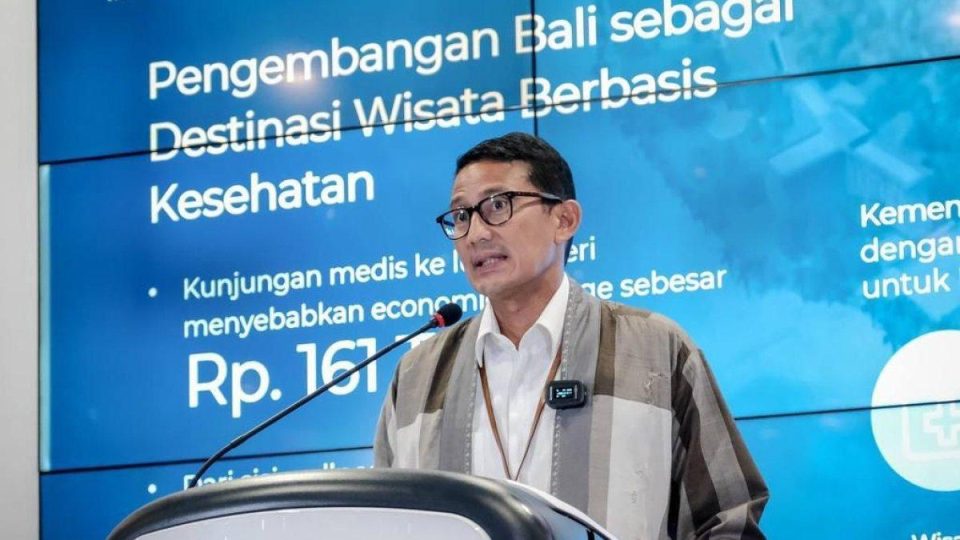The Minister of Tourism and Creative Economy Sandiaga Salahuddin Uno has revealed that Bali is being prepared and developed to be a leading destination for health tourism.
The push is to mitigate the fact that many Indonesian people choose to seek treatment abroad rather than at home. Sandiaga Uno said that his team would try to develop Bali as a health-based tourist destination.
On Monday, 28th November 2022, Uno said in his “Weekly Brief with Sandi Uno”, which was also attended by a number of officials within the Ministry of Tourism and Creative Economy, that they will prepare health tourism destinations. So far the ‘Indonesia Medical Tourism’ branding logo and the #SehatdanBugardiRumahSediri and #DiIndonesiaAja campaigns have begun to be used for health tourism stakeholders in Indonesia.
The plan to develop health tourism in Bali is supposed to attract Indonesian people who usually seek treatment abroad to stay in their country to get optimal healthcare since. Based on data from the Ministry of Health in 2021, there was a capital outflow of around Rp161 trillion per year from Indonesians seeking treatment abroad.
The development of health tourism is a priority for the national strategy because it solves challenges faced by Indonesia, namely post-pandemic health and economic recovery.
The Ministry of Tourism and Creative Economy is also continuing to collaborate with ministries, agencies, associations, and other health tourism industries to implement the four pillars that have been agreed upon to develop health tourism. Some of them are medical tourism, fitness tourism, sports event-based health tourism, and MICE-based scientific health tourism.
Uno explained that apart from strengthening collaboration, his ministry has also made a number of efforts so that the tourism sector could be connected with the health sector.
“Bali is a champion area and a hub for medical tourism as well as a complete destination with the potential for us to develop according to the pillars of health tourism,” said Uno.
They are compiling a National Action Plan (RAN) for Indonesian Medical Tourism and Wellness Tourism to support and encourage Bali’s hospitals and clinics to obtain a Minister of Health Decree as a medical tourism healthcare facility to support the Ministry of State-Owned Enterprises programme which is currently developing a Health SEZ in Sanur.
Each regional government has been advised to establish a cooperative organisation that will have the capacity to organise lobbying efforts and carry out the policies and programmes required in the context of fostering health tourism in their area, as well as being a quick win.
Several hospitals will be built as well as other medical services for SEZ Sanur. These will be collaborations with renowned institutes from numerous developed countries, such as the Mayo Clinic and Johns Hopkins University.
“We hope this will be able to accommodate more opportunities, not only for Indonesian people to get excellent healthcare but also for tourists that visit Bali. Tourists can not only enjoy the beauty of nature and culture but also experience quality healthcare,” said Uno.
“The Minister of Health also has various breakthroughs such as inviting our diaspora, especially doctors who come from Indonesia but practice abroad, and of course those who have high knowledge can return to Indonesia to contribute to health-based tourism in Indonesia,” he added.




